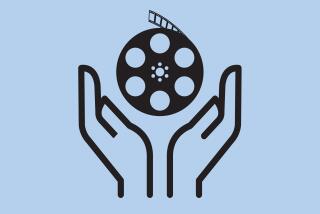Could TV writers help curb the pandemic? This group thinks so
- Share via
Neal Baer has experience changing audiences’ opinions.
The pediatrician turned TV writer wove public health storylines into shows like “ER” as part of a campaign to popularize the use of designated drivers to reduce drunk driving. Now, he and others in Hollywood have enlisted medical experts to help them persuade viewers to mask up and get vaccinated against COVID-19. The aim is to encourage writers and showrunners to address the subject matter in their characters and storylines — without hitting viewers over the head with the message.
“That’s what we do as writers. We have our characters persuade each other all the time,” Baer said during a workshop for members of the Writers Guild of America on Wednesday.
The Harvard Medical School graduate moderated a discussion with health communications experts about research into the motivations of those resistant to masks and vaccines and how writers can best incorporate these messages in their shows.
“We don’t want to lose viewers because we’re seen as preaching something or telling them what to do. We want to integrate it into our stories like it’s natural, like life,” he said.
TV shows such as “Grey’s Anatomy” and “Chicago Med” have already addressed the pandemic in their storylines. In one clip of ABC’s “black-ish” shown during the Zoom-based WGA discussion, Tracee Ellis Ross’ character comedically tries to stop her neighbors gathering and hugging outside her home. “They don’t believe it’s real,” she says, banging on her window. Baer cited these as successful examples of how the pandemic can be integrated into shows.
The pro bono campaign, titled “Be a Protector,” is organized by USC Annenberg’s Hollywood Health & Society program, health experts from the University of Michigan and Yale, and the Los Angeles entertainment industry consulting firm Cultique. It is targeting showrunners, writers, agents, performers and TV industry executives.
Inside the business of entertainment
The Wide Shot brings you news, analysis and insights on everything from streaming wars to production — and what it all means for the future.
You may occasionally receive promotional content from the Los Angeles Times.
It is not the first time Hollywood has had a role in spreading public safety messages to film and TV watchers. In the 1980s, shows such as “The Cosby Show” and “Cheers” were used to convey safety tips as part of a national campaign to prevent drunk driving. TV writers have previously been enlisted to stop glamorizing smoking. And in the political arena, NBC’s “Will & Grace” has been credited with shifting public approval of gay marriage.
The film and television industry itself has been hard-hit by the pandemic, with hundreds of thousands losing work due to production shutdowns and closures of theaters and theme parks.
“There has been a huge investment financially into COVID-19 protocols,” said Linda Ong, CEO of consultancy Cultique, which helped launch the initiative. “That investment is only going to pay off if we pay attention to what is going on the screen. If people want to get back to production faster and stay in production ... then it is in our best interests to normalize this behavior.
“If you turn on TV today, you generally don’t see any people wearing masks or adopting social distancing or quarantining,” Ong said in an interview. “We are not looking for a very special episode, we are looking to normalize it.”
The initiative was partly inspired by the work of TV executive Brandon Tartikoff and the Harvard School of Public Health 30 years ago. They formulated ways to get the “designated driver” concept into popular culture without preaching to the public in response to rising drunk-driving-related deaths.
During Wednesday’s session, Kenneth Resnicow, a professor of health behavior and health education at the University of Michigan, noted that motivations vary among those resistant to vaccines or wearing masks, and some react negatively to pressure.
“Words like ‘you should,’ ‘you must,’ ‘you have to’ — that tends to push them in the opposite direction,” Resnicow said. Instead of arguing, he suggested characters be positive about a person’s belief systems to increase their openness to being persuaded.
Additionally, individuals who resist wearing masks will prioritize the need to keep their loved ones safe and protected over their personal beliefs about rights and freedoms, according to national survey data.
“The motivation ... to protect the other was tremendously important,” said Lawrence An, director of the Center for Health Communications Research at the University of Michigan. “It’s like a psychological foot in the door that allows more conversation to happen.”
More to Read
Inside the business of entertainment
The Wide Shot brings you news, analysis and insights on everything from streaming wars to production — and what it all means for the future.
You may occasionally receive promotional content from the Los Angeles Times.











